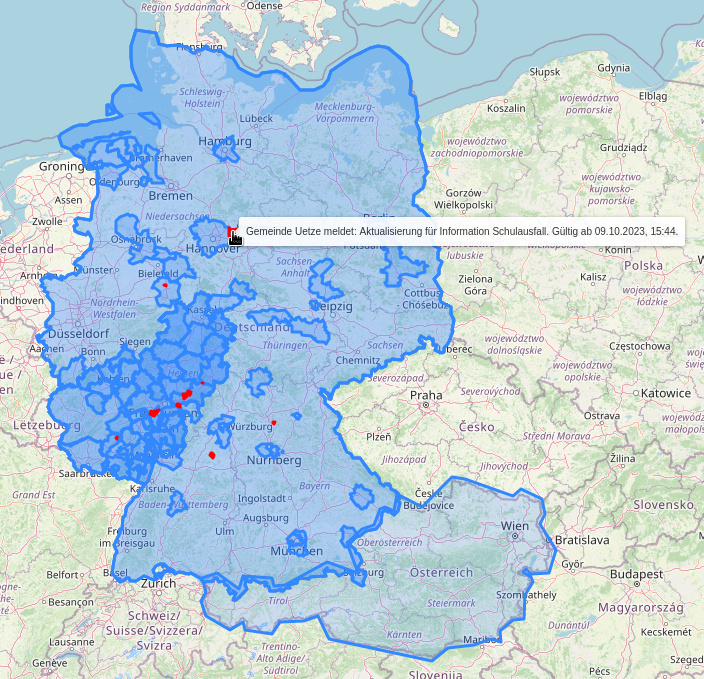UPDATE 2025-01-02: Since KATWARN is no longer used in Austria since 2024-09-30, and the last Austrian alert expired at the end of 2024 this API is no longer useful for Austria and the archival process has been stopped as of 2025-01-02. The archive of all alerts in 2024 is still available in the git history.
NOTE: This is just a hobby project and not affiliated with KATWARN in any way.
On the national alert test day, when a test alert was displayed on the official KATWARN Austria app, I wondered if there was also a website where this data was displayed, and if there was any kind of history to see what types of alerts are usually reported via KATWARN and how often.
I couldn't find anything for Austria, but it turns out KATWARN provides a REST API. So here is a simple API client, and also a GitHub action which regularly dumps the API responses into git, so one can see a history of all alerts.
This is just a minimal implementation, feedback welcome.
# pip install git+https://github.com/lazka/katwarn-api
from katwarn_api import KatWarnApi
api = KatWarnApi()
for entry in api.get_incidents().incidents:
incident = api.get_incident(entry.id)
for alert_id in incident.alerts:
alert = api.get_alert(incident.id, alert_id)
print(f"{entry.provider_id}: [{alert.event_code.value}] {alert.headline}")Print a map of all alerts (excluding topic alerts) via folium:
poetry install --with foliumpoetry run folium_example.py -o map.html
Dump all resources to a JSON file:
poetry run dump.py -o dump.json
List all service areas, topics, and alerts:
poetry run example.py
